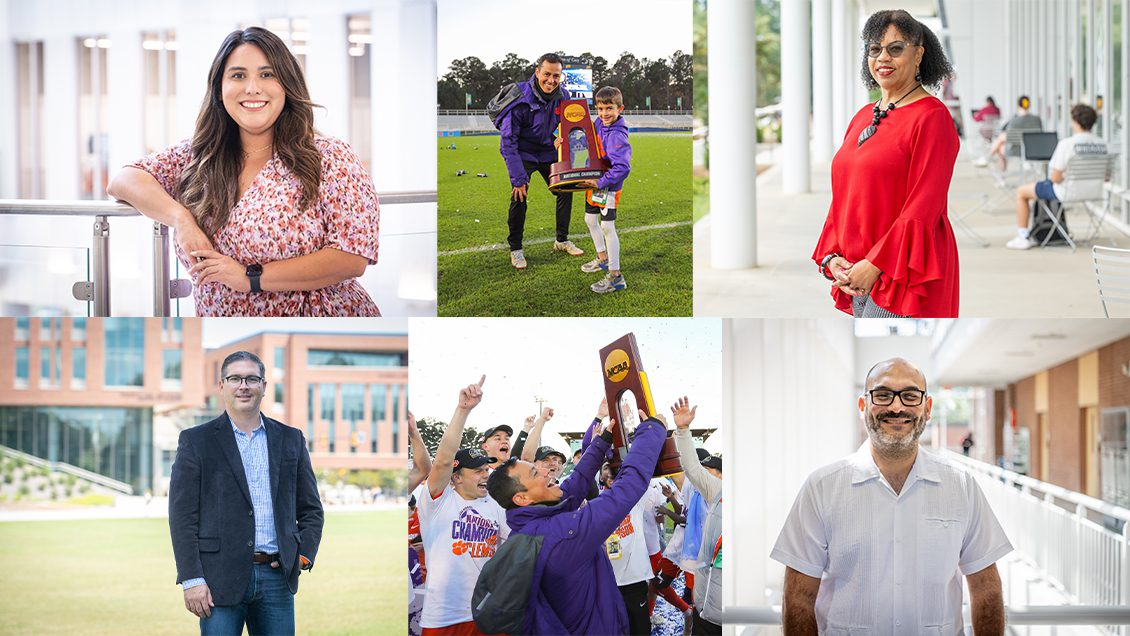As the Hispanic and Latino population at Clemson continues to grow, the University will mark National Hispanic American Heritage Month with a series of events and talks.
The national celebration recognizes the indispensable contributions Hispanics and Latinos have made to the country’s identity, and Clemson will use the month to highlight the vital impact Hispanics and Latinos have had on its growth as an institution.
The annual event celebrates the histories, cultures and contributions of American citizens whose ancestors came from Spain, Mexico, the Caribbean, and Central and South America.
The observation started in 1968 as Hispanic Heritage Week under President Lyndon Johnson. President Ronald Reagan expanded it in 1988 to cover 30 days beginning on September 15 and ending on October 15. It was enacted into law on August 17, 1988.
September 15 is significant because it is the anniversary of independence for Latin American countries Costa Rica, El Salvador, Guatemala, Honduras and Nicaragua. In addition, Mexico and Chile celebrate their independence days on September 16 and September 18, respectively. Also, Columbus Day, or Día de la Raza, October 12, falls within these 30 days.
“Celebrating Hispanic Heritage Month at Clemson University is very important as we continue to see record-breaking growth of our Hispanic and Latinx students, and an increase in Hispanic and Latinx faculty, and staff on our campus each year,” said Julio Hernandez, assistant to the president for community outreach and engagement. “On a personal level, as a Latino leader in higher education and a first-generation college graduate, I am proud to be part of the Hispanic and Latinx community at Clemson. My journey has been shaped significantly by my culture, strong family values, and hard work from so many who have paved the way for me, leading me to a warm Clemson Family and an amazing career.”
Here are a few of the proud Hispanics and Latinos who make Clemson a better place every day:
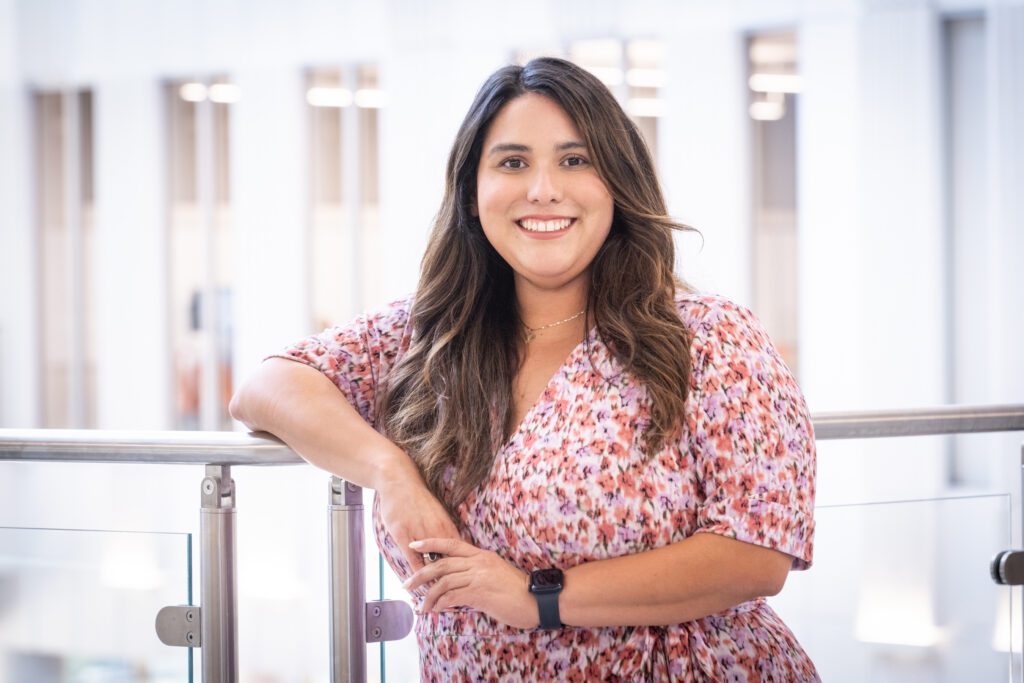
Norma DeLuna, undergraduate admissions counselor, grew up in Anderson, but her Mexican heritage is such an important part of her life, she says, that it is an indispensable part of her identity.
“I never had a name for it; it was always intrinsic,” she says. “My family is originally from Mexico, and we’re still very much in touch with our Mexican roots. My heritage is important to me because it means carrying the strength of my parents and ancestors who faced obstacles and barriers with courage so that I can have more opportunities than they did. I love how rich and diverse my culture is, whether it is the food, music or connecting with family. Spanish is also my first language, and I’m very proud of that.”
DeLuna’s parents instilled the importance of higher education in her from a very early age. They did such an excellent job of it that she has dedicated her life to helping underserved students find their way to Clemson.
“For me, it is important that all students know, regardless of their background, that if higher education is something that they want to pursue, there is a seat at the table for them,” she says.
DeLuna says her proudest moments at Clemson thus far have come through her office hosting orange carpet receptions for underrepresented students.
“During these receptions, students and their families are celebrated for their hard work and dedication that went into applying and getting into Clemson,” she says. “Witnessing the proud moments between students and families fills me with pride. Seeing them realize their worth and belonging, especially officially becoming part of the Clemson Family, have been my favorite moments here at Clemson.”
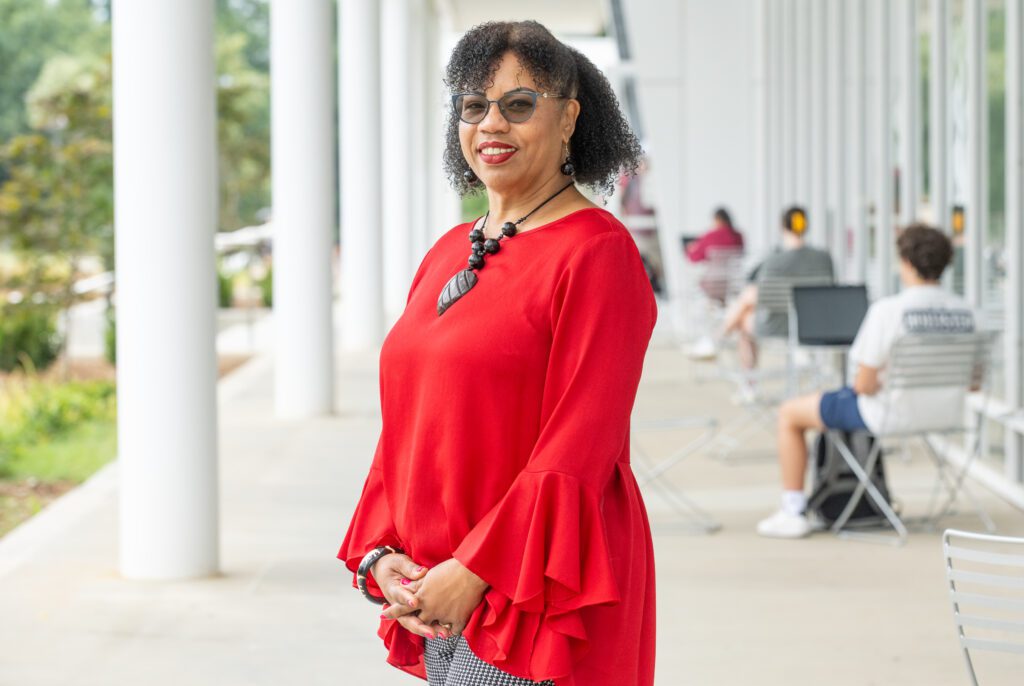
Arelis Moore, associate professor of community health in the Department of Languages, was born and raised in Santo Domingo, the capital city of the Dominican Republic, and identifies as Afro-Latina. She came to Clemson in 2007 to earn a Ph.D. in international family and community studies. She graduated in 2011 and was hired as a postdoc and continued working until becoming an associate professor. She maintains strong ties with her Dominican Republic heritage through family and friends, and visits as frequently as possible. Her son, Alex, was seven years old when the family relocated to the U.S.
“The first language spoken in my household has always been Spanish, because I want my son to keep his language and heritage as strong as possible, while successfully acculturating to the mainstream U.S.,” she says.
Moore strives to maintain her connection to her roots by volunteering in the local Latino community and found that it expanded her Latino identity.
“It has been invaluable to learn about the great diversity that exists in our Latino culture,” she says. “I try to sustain my connection with my Latino heritage through service, primarily volunteer opportunities or research that contribute to the healthy development of South Carolina Latinx immigrant families, as well as in the Dominican Republic. The identification with my culture is important to me because it keeps me grounded and appreciative of our many strengths and weaknesses to inform my research and community development efforts.”
Moore is the incoming president of the Commission on Latino Affairs, which will allow her to continue to contribute to the development and growth of the Latino community within Clemson.
Moore has received several awards for teaching and advising, but she says her proudest moment at Clemson so far was when she received her induction to associate professor with tenure.
“It represented the successful culmination of a long journey to establish myself as a scientist, scholar and professor in the U.S.,” she says.
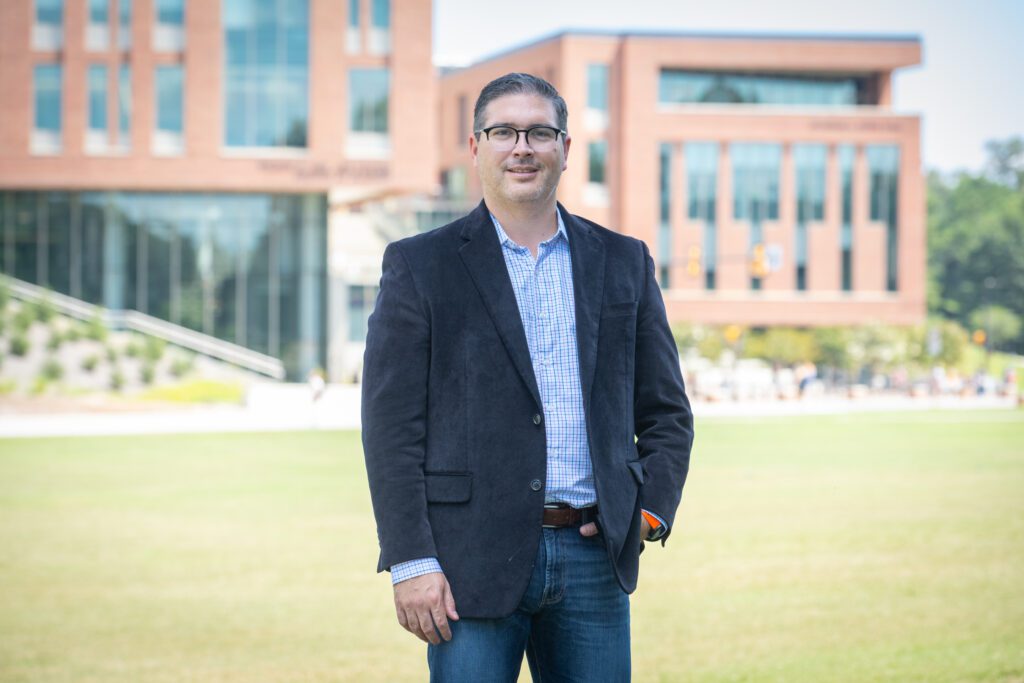
José Sagarnaga, clinical assistant professor and general management area coordinator for the Department of Management, grew up in Chihuahua, Mexico, and came to Clemson from Oklahoma State University in 2021. His colleagues in the Department of Management and the excellent academic quality of the Wilbur O. and Ann Powers College of Business drew him to the Upstate. He is fiercely proud of his heritage and was awarded the 2022-2023 Hispanic Faculty Impact Award by the University’s Hispanic and Latino student groups.
“I am connected to my heritage daily through the three F’s: family, food and friends,” he says. “It is important to me because my cultural heritage is from Mexico, and we are proud of our roots and history. It is something that I share daily with my children and whenever I can with my colleagues and students.”
Sagarnaga says that his proudest moment at Clemson so far was teaching a global business and servant leadership course that included a study abroad program in the Dominican Republic with 23 students in Spring 2023.
“Those students made me very proud to be their professor through their professionalism and commitment while visiting businesses and serving those in need.”
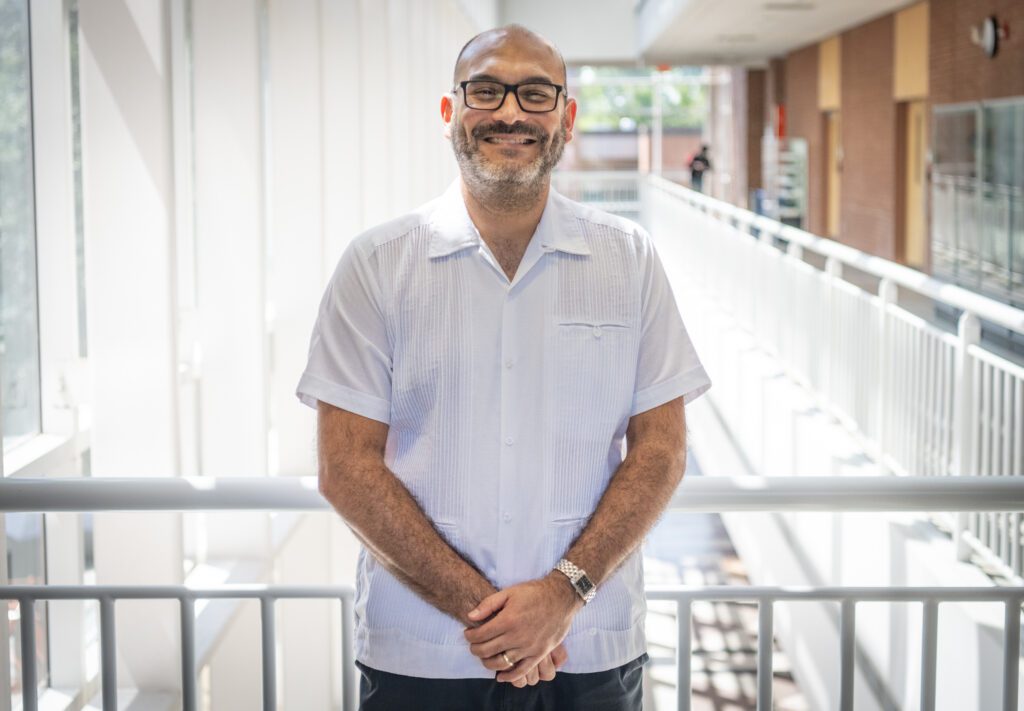
Rodrigo Martinez-Duarte, associate professor in the Department of Mechanical Engineering, grew up in Los Mochis in Sinaloa, Mexico. He pursued his undergraduate degree in Monterrey, Mexico, and came to the U.S. to earn a Ph.D. at the University of California, Irvine, in 2010. He spent three years at the Swiss Federal Institute of Technology Lausanne, Switzerland before coming to Clemson in 2013. He saw an uptrend of Hispanics and Latinos at the University and wanted to be part of it.
He is the first in his family to live in the U.S. and has made it his mission to make Clemson a welcoming place for Hispanics and Latinos. He is involved in multiple initiatives to that end, including organizing Clemson’s Day of the Dead celebration, serving on the Commission of Latino Affairs as a founding member and past chair, and being the faculty adviser for the Society of Hispanic Professional Engineers.
“It is important to me to maintain these traditions because I consider them part of my identity,” he says.
Martinez-Duarte has worked diligently to strengthen Clemson’s ties with universities in Mexico through the International Internship in Engineering Design program. The core tenant of the program is to assemble international teams of students who tackle a problem of international industry.
Despite an impressive array of awards for teaching and service, Martinez-Duarte says his proudest accomplishment at Clemson thus far has been seeing the Day of the Dead celebration grow each year he’s been involved.
“Seeing how the Day of the Dead celebration grows and grows every year and how people enjoy it so much, and when they thank us for keeping this tradition alive all the way here in Clemson, it feels great,” he says. “Seeing students graduate is a close second!


Camilo Rodriguez, goalkeeping/assistant coach for the Clemson Men’s Soccer Team, grew up in Bogotá, Colombia, and came to Clemson in 2015 after spending eight years as the head coach at Southern Wesleyan University. Most of his family still lives in Colombia, and he stays in constant contact with them.
“My Hispanic/Colombian heritage is something that is very important and special to me,” he says. “I have been blessed to be in the U.S. for over 20 years, but I still miss my country, family and friends. It is part of who I am and where I come from, and I try to remember that daily.”
Rodriguez says he’s experienced many memorable moments since coming to Clemson, but winning the men’s soccer national title in 2021 is hard to beat.
“It is probably my proudest moment. Winning a national championship at this level is such a remarkable achievement, and being able to do it with that group was priceless.”

